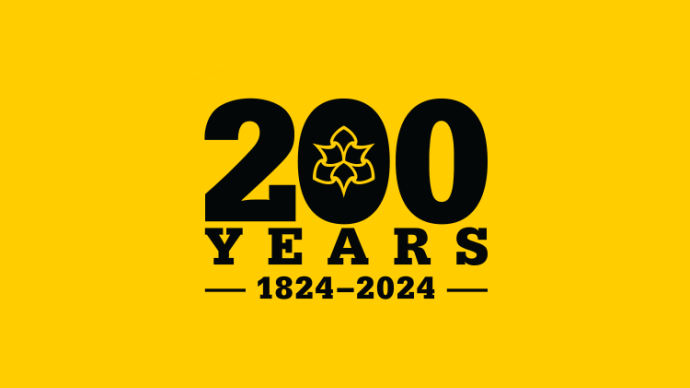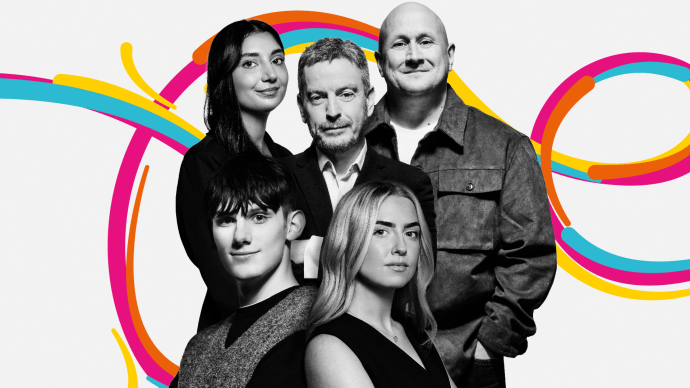From lab to A-list – how environmental chemistry is hitting the headlines
Dr Dave Megson

Standfirst
Sitting in the new Dalton Building, Dr David Megson’s smile hardly leaves his face as he discusses his research. For someone whose work focuses on chemical pollution, he is undeniably cheerful.
Main story
Toxic chemicals are everywhere we look, and in lots of places we wouldn’t think to look, too. From new beds to cars and clothes, advances in chemistry have led to products that often make life more convenient, but sometimes more toxic too.
In addition, industrial processes can create chemical by-products which end up in the water supply and food chain. As Reader in Environmental Chemistry and Forensics, Dr Megson’s work investigates the sources of environmental pollution that many of us don’t realise we encounter every day.
The best impact you can have on the world
A chance conversation with a university lecturer as a teenager led him to his career in environmental chemistry, combining a passion for protecting the environment with a love of chemistry, travel and being outside.
As an environmental chemist, Dr Megson’s work stretches from chemical pollution to potential future pandemics, but one core belief underpins it all.
“I want to have the best positive impact I can on the world. Chemical pollution is everywhere. It’s a part of our everyday life, which is quite sad, really. And then you think, ‘Why is it a part of everyday life and how can we stop it?’” he says.
“Often people made those chemicals for good reasons, so they have a lot of desirable properties, but a lot of them are used for convenience. If we don’t like chemicals in our environment and we don’t want them going into ourselves or our children, we, as a society, need to do something about it.”
Making headlines with Hollywood stars
Dr Megson’s expertise in polychlorinated biphenyls (PCBs), also known as ‘forever chemicals’, is just one way his research is making an impact.
His most recent research has shown that tens of thousands of tonnes of these toxic chemicals are being produced as industrial by-products despite being banned decades ago, making national and international news, with broadsheet journalists keen to highlight the potentially disastrous consequences these chemicals are having on the world around us, from the water supply to the food we eat and the clothes we wear, all posing potential health risks.
This, in turn, led him to one day find himself standing in a field with Hollywood actor, Michael Sheen, after the creators of award-winning BBC podcast Buried approached him with the aim of using his academic expertise to help expose an alleged environmental cover-up involving ‘forever chemicals’.
“Normally I focus my science communication for the few scientific experts working in the same niche area, so it was a great challenge to try and communicate this complex information to be technically correct but also accessible to a general audience,” Dr Megson says.
“Working alongside Michael Sheen was brilliant, and it was also great to work alongside the other guys as part of the production – normally I just chat PCBs with other scientists, but it was really enjoyable to chat about PCBs with journalists, an A-list celebrity and a vicar.
“It was such a rewarding experience and listening back still gives me goosebumps, because I think they did such a good job of telling that story.”
And it was a story that needed to be heard – the podcast has led to an official inquiry at a site in Cheshire, where high levels of PCBs were recorded.
A less polluted world
What’s next for Dr Megson? As part of his Royal Society of Chemistry roles with the International Network of Environmental Forensics and on the Environment, Sustainability and Energy Council, he’s part of a campaign for the creation of a new chemicals agency to simplify the regulation of chemicals, which is currently overseen by different agencies depending on the context in which chemicals are found.
When asked how he stays so optimistic in the face of such widespread environmental pollution, he smiles again.
“I struggled quite a bit as a teenager and young adult with the state of the world, and used to feel utter despair at the thousands of injustices you see on a daily basis,” he says.
“Then I decided to pick one of the issues and to pour all my energy into trying to make a difference. I thought about figures like Martin Luther King and Nelson Mandela, amazing people who made an enormous difference and thought, ‘Why can’t I succeed in this this tiny area which pales into insignificance against those guys?’. That helps give me a bit of perspective and motivation to try to make a positive change in just one small area.
If we all pick one small area, we can fix the world.
More stories
Discover more
-
![Luke Cronshaw, the Commercial Director of Enviroheat, posing in front of radiators at his factory]()
Energising sustainable power
Find out more -
![Professor Liz Price smiling]()
Building a brighter future
Find out more -
![Andy Ridley in a citizens of the great barrier reef shirt smiling at the camera]()
A Q&A with Andy Ridley
Find out more
About 200 years
Manchester Met celebrates two centuries of driving progress through excellent education and research.
-
![200 years 1824-2024]()
200 years
Find out more -
![Siemens Chief Executive Carl Ennis posing with the firms degree apprentices]()
Driving economic growth
Find out more -
![Two nurses standing together and smiling]()
Transforming health
Find out more -
![A digital image of the university's arts buildings]()
Championing creative excellence
Find out more







